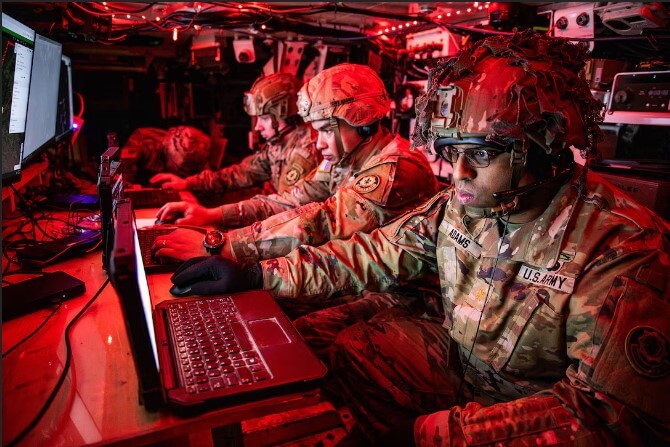
This is the age of universal stupidity or collective brainwashing by the TV and social media. Brainwashing has become possible because modern education has completely failed in making people ‘educated’. People have abandoned thinking for themselves because they do not want to exert their feeble minds. As a result, they have neither any ‘facts’ of their own nor any ‘opinion’. For both, they depend on misinformation and ignorance peddled on social media and TV.
This is also the age of populism and hyper-nationalism. All these put together, have convinced people in most nations of the world that if their great nations go to war, their victory is guaranteed. They have been fed the reasons too. That they have the great fortune of having the leadership of some charismatic leader; that their soldiers are extremely brave and patriotic; and that their imported weaponry can whip the enemy. As for the gushing, dumb anchors on TV, the way they speak about the sheer joy of beating the enemy, can only be described as a case of ‘martial orgasm’!
Why the war in Ukraine is dragging on in spite of the enormous losses suffered by Ukraine? Because the Western media has made the Ukrainians believe that buoyed by the weapons dumped on them by NATO and by having elected a comedian as their leader who is ‘approved’ by the West, they would defeat a giant like Russia. In other words, possession of Western weapons and having leaders who claim to be pally with Western leaders is projected as the key to certain victory. Never mind his being a comedian. Being a joker and a duffer are actually qualifications for leaders in this era. People are comfortable with them because they can easily identify with them.
In this article, I shall bust the popular myths surrounding the business of victory and defeat in wars.
The Fog of War
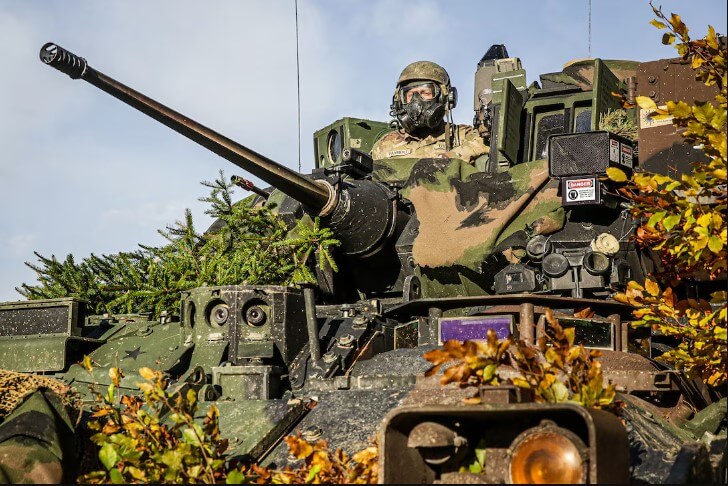
There are uncertainties inherent in any war. As the great German general and military theorist Clausewitz had famously said, “War is the realm of uncertainty; three quarters of the factors on which action in war is based are wrapped in a fog of greater or lesser uncertainty.”Its modern elaboration means that, not to speak of the outcome of a war, there is great uncertainty regarding one’s own capability, adversary capability, and adversary intent during an engagement, operation, or campaign. Therefore, any journalist, TV anchor or student of WhatsApp University who boasts that his or her nation shall definitely be victorious and that the enemy shall necessarily be ground to dust, obviously does not know anything about military history.
No war in history has ever been a cakewalk for any side and no nation of the world, however strong it might have been, ever came out unscathed from any conflict. In entire human history, there has never been anything called ‘victory on the cheap.
Most ignorant people confuse battles with wars. Battles and wars are entirely different things. Armies might win or lose battles; however, in the end, it is nations that win or lose wars. Victory on a battlefield might depend on numerical or technological advantage of a side in terms of the size or weaponry of the military; that does not automatically translate into winning the war. Even in respect of battles, short engagements can go either way, size or technology notwithstanding.
For a nation, victory or defeat depends ultimately on the resolve of the people to sustain devastation. One must recall with admiration how the gritty British went through the terrible German bombing of London during the Second World War and yet refused to succumb. Soviet casualties in the WWII were in excess of 20 million! Yet, the nation fought on.
The Lucky Shot Syndrome
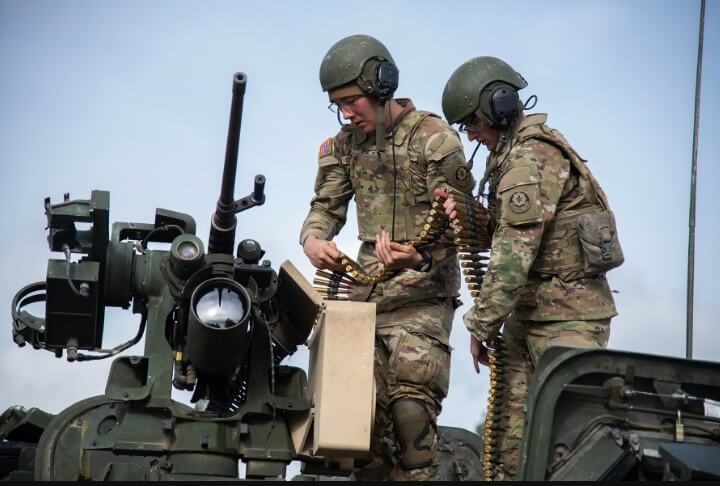
This theory, developed by me, in brief, states that in wars of short duration as against long-drawn-out wars, the element of sheer chance plays a very important role. Clausewitz also had repeatedly stressed to avoid ‘absolute, so-called mathematical, factors’ in thinking of war and instead emphasized ‘an interplay of possibilities, probabilities, good luck and bad’ that were critical to military outcomes.
We can understand it easily from innumerable examples from combat sports like boxing or MMA (mixed martial arts). When underdog Andy Ruiz of Mexico fought the reigning world heavyweight boxing champion Anthony Joshua in June 2019, Joshua had three titles under his belt and a record of 22-1, with 21 of the wins coming by knockouts, having defeated great boxers like Wladimir Klitschko on the way. In comparison, Ruiz had fought mostly ordinary boxers. Joshua was a mountain of chiselled muscle whereas the roly-poly Ruiz was visibly out of shape. Yet, in the third round, in spite of having been knocked down once, Ruiz connected with a ‘lucky’ left hook that knocked Joshua down. Joshua was hurt so badly that over the next four rounds, he was knocked down thrice more and was TKO’d. In MMA also, it is always some lucky punch or kick which proves decisive in the combat.
In the History Channel program ‘Deadliest Warrior’, they have a simulation program that runs possible engagements between two warriors a 1000 times precisely to eliminate the possibility of someone getting a lucky shot. If you fight only once, chance dominates.
Training; maintenance; and weapons’ capabilities etc. do play their roles, but cannot guarantee that the other guy will not get that lucky shot in short engagements. Moreover, if someone has somehow engineered an element of surprise, it increases the probability of landing that lucky shot.
Aerial Dogfights are Exciting but Don’t Win Wars
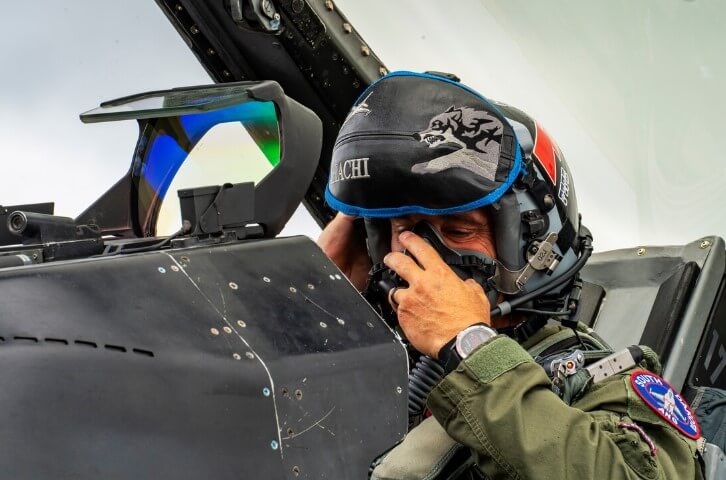
For long, dashing fighter pilots are perceived as alpha males, the ultimate symbols of a nation’s virility and manhood. The hugely popular Top Gun series of movies featuring Tom Cruise have sealed this stereotype and, at the same time, distorted the perception of millions about air war to such an extent that talk of air war and most people will talk only of dogfights.
The fact is air war is different from aerial combat and Top Guns do not win air wars for you. A dogfight, howsoever gallant, complex or exciting, remains a dogfight only. All that happens is that one fighter plane shoots down another after a great deal of turning and twisting in the air. Dogfights or aerial combat is important only to the extent that once you have established air superiority over a comparable enemy, your bombers may unleash their explosive payloads upon the enemy’s vital military and industrial centers to hit him where it really hurts, or the ground attack aircrafts may support your ground forces or attack the enemy’s ground forces. If the enemy air force is not comparable, as it was in the two Gulf Wars, air operations are reduced to essentially bombing campaigns sans any dogfights.
The eventual outcome of an air war depends on several factors other than aerial combats. They are unglamorous, little known things involving a large number of men whose serious work is seldom recognized. They include surface-to-air attack capability for the defenders; capability of the radar systems and early warning systems of the defenders; air-to-air refueling capacity; and quick repair and maintenance of aircrafts etc. to name a few.
Rambos Have Never Won a War
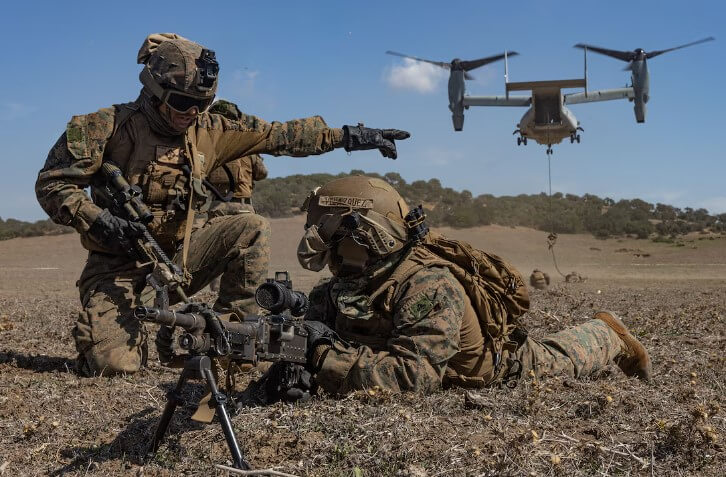
For the edification of those ignoramuses whose chests swell with pride by the display of commandos’ skills in some carefully choreographed displays during various show events, I must tell that, as history of wars stands witness, commandos do not win wars, and have never won any war. They might be good for some isolated spectacular actions, but wars are won and lost in the old-fashioned grind of regular soldiers whom the US military calls ‘Grunts’ and who quietly perform their difficult, dangerous, and dirty work in a stoic, un-glamourized fashion. Once again, people’s perceptions have been distorted by a very large number of films based on commandos or Special Forces.
Since the Roman era, it has been learnt and established that discipline, technique and grit in fighting are more important than bodily strength or athletic abilities. The average height of the Roman soldiers in Julius Caesar’s armies was just five-and-a half feet. Yet, they defeated the Germanic, Gallic and Brittonic tribes who were physically much bigger than them.
Let us face the unsavory truth. If the Spetsnaz commandos can fight bare bodied in freezing temperatures, it is their problem. Who cares and what do they expect? Do they expect that the commandos will really have an occasion to fight bare bodied in freezing temperatures? Well, if they have to, it would only mean that their army neither takes good care of their logistic needs nor has a sound strategy! Or, do they think that they will force the enemy to fight in freezing temperatures where he would be frozen stiff but the Spetsnaz would beat them to pulp? Admit it, in the Mujahideen War, the Russians could not hold on to Afghanistan in spite of the Spetsnaz.
The US Marine Corps has gone on to develop a whole system for hand-to-hand combat and combat with expedients (like their entrenching tool) called MCMAP (Marine Corps Martial Arts Program). Well, in their 20 years of fighting in Afghanistan, the Taliban did not give them a single opportunity to indulge in hand-to-hand combat.
Rock climbing looked very impressive in the Tom Cruise film Mission Impossible 2; it has practically no relevance in real warfare. If an army is obliged to gain a tactical victory by a couple of guys climbing a vertical rock face, it only means that the General Staff has not planned the war well.
Remember, what you see in show events is only to bedazzle you and the dumb journalists covering them. Do not be fooled by scripted demonstrations.
War Is a Serious Business, Don’t Trivialize It
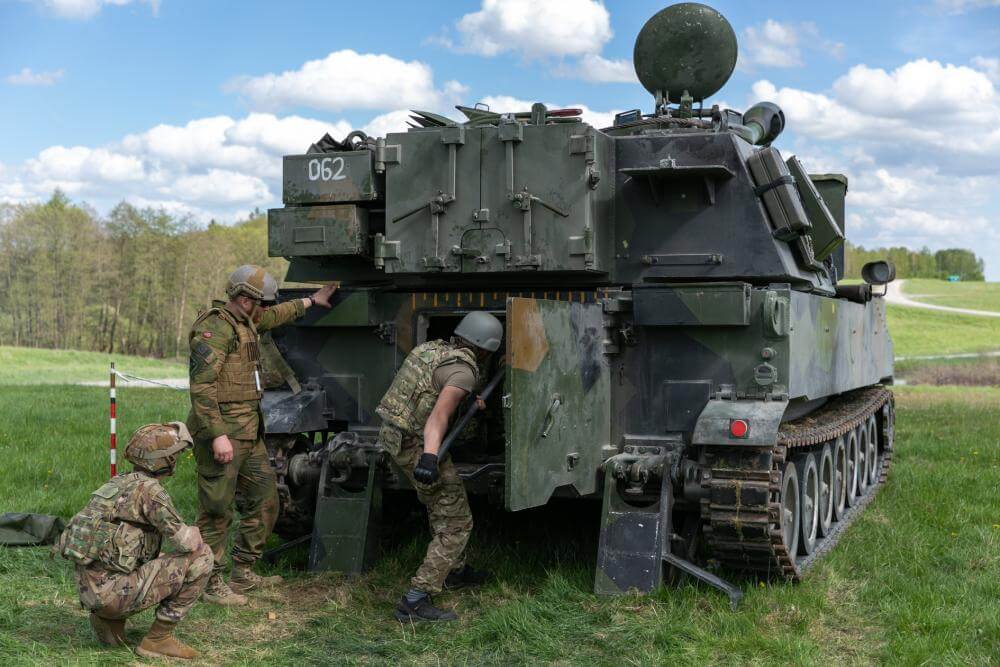
The venerable Chinese military strategist Sun Tzu had said, “Warfare is a principal matter of the state. It is the territory of life and death, the road to survival or disaster. Its study cannot be neglected.” Leaders, howsoever charismatic they might be perceived by dumb people, are merely humans. They do not exist or think in any vacuum. Thus, the distorted public perception about the conduct of wars subconsciously rubs off on to them and eventually, they become victims of their own rhetoric.
Also Read: Are we living in the age of missile warfare?
War is much more than shooting in the battlefield. A nation should first be clear about the objectives of war. One cannot claim that his only objective is to efface his enemies from the face of the earth. One should have a corresponding national war-fighting strategy that takes into account every possible contingency, both non-nuclear and nuclear. Then, one’s defence industrial base and other resources must be capable of supporting that strategy. More than these, it requires a ‘national will to fight’ in the people, the horrors and devastation of war notwithstanding. Raw valour of troops is no substitute for sound strategy and the national will.
The resurgence of populism in the world goes pari passu with the resurgence of a lack of critical faculty amongst the people. The dumber the people, the more popular their leader will be. In his book ‘What is Populism’, Jan-Werner Müller, professor of politics at Princeton, shows that clever leaders excel in defining and framing their policies and actions as representing the will of the ‘real or proper people’, a group, which they claim to represent exclusively. Those who dissent are dismissed, claiming that they are not ‘real or proper people’, if not traitors outright.
When such populist leaders take any decision, howsoever stupid that be, they project as if the decision is ‘authorized by the people’. In effect, it means that if something goes wrong, the leader can always argue that he is not to be blamed because he alone represents the people and their true interests, and that he had merely followed the ‘will of the people’.
Photos courtesy: U.S. Department of Defense


Great! Reading Asthana sir is always enlightening